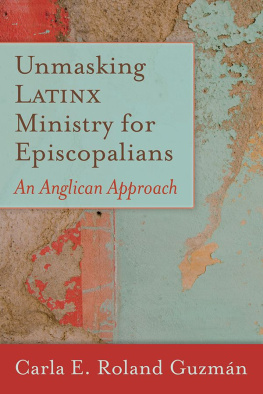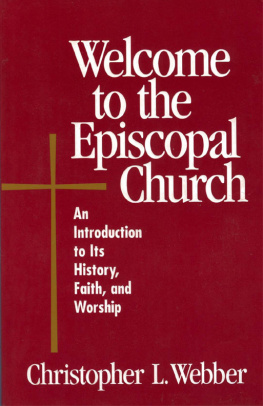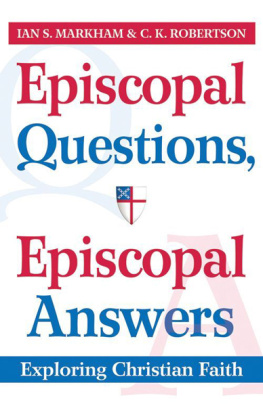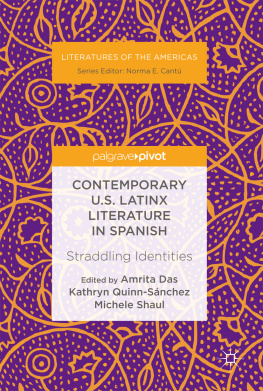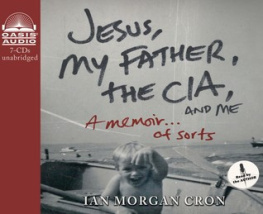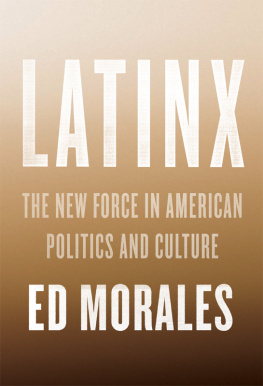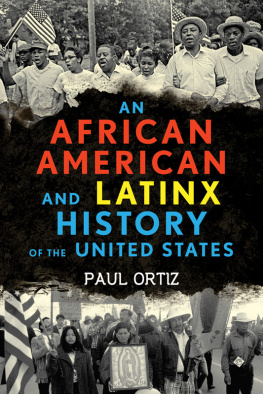
For
Mamian expert in resilience.
Rosalind, Caroline, Dad, Abuela, Tio, Normita, Carlitos, Natja, Evan,
Andrew, Hermancito, Sofa, and all of my extended family
thank you for the laughter.
Friends that are always thereSuyin, Jennifer, Susan, Liz,
Kathy, Ellen, and Amanda.
SMSTa faithful worshipping community.
Latinx colleaguesPedro, George, Gladys, Altagracia, Yamily, Juan, and Anthony
Colleagues in the dioceses of New York and Puerto Rico, and classmates from CDSP.
Joanne y la familia de HTIexperts in theologizing en conjunto.
Bernie and the CLGS family.
Current students, staff, and faculty at GTS.

Copyright 2020 by Carla E. Roland Guzmn
All rights reserved. No part of this book may be reproduced, stored in a retrieval system, or transmitted in any form or by any means, electronic or mechanical, including photocopying, recording, or otherwise, without the written permission of the publisher.
Unless otherwise noted, the Scripture quotations are from New Revised Standard Version Bible, copyright 1989 National Council of the Churches of Christ in the United States of America. Used by permission. All rights reserved worldwide.
Church Publishing
19 East 34th Street
New York, NY 10016
www.churchpublishing.org
Cover design by Jennifer Kopec, 2Pug Design
Typeset by Rose Design
A record of this book is available from the Library of Congress.
ISBN-13: 978-1-64065-150-0 (paperback)
ISBN-13: 978-1-64065-151-7 (ebook)

O ne of the great pleasures of my fifteen years of priestly service in New York City was my friendship and shared ministry with the Rev. Carla Roland Guzmn, PhD.
In her new book, Unmasking L ATINX Ministry for Episcopalians: An Anglican Approach, Dr. Roland invites us into reflection and learning about the Episcopal Churchs ministry to, with, and among Latinx people and communities. Most of all, Dr. Roland challenges the church to stop hyphenating our ministry for groups that are not of European descent, and to see ministry to, with, and among people of different cultures as the normative practice of following the gospel. She calls the whole church into putting their baptismal promises to work in fulfilling the mission of the Gospel.
Dr. Roland also reminds our churches that there is no single, monolithic L ATINX M INISTRY . A shared heritage of coming from Spanish (or Portuguese) speaking countries does not result in the same spiritual expectations and needs between a first generation, Roman Catholic immigrant from Guatemala; a third generation Mexican descendent who grew up Pentecostal and does not speak Spanish; or a cradle Episcopalian from Puerto Rico.
As the Episcopal bishop of Arizona, I oversee congregations and clergy from a remarkable number of backgrounds, who bring diverse needs for Spanish, bilingual, and English liturgy and leadership. And many of them are experiencing generational transition between those needs in their congregations.
I invite you into Unmasking L ATINX Ministry for Episcopalians to learn our history and participate in envisioning a future church that is distinctly Anglican and open to change in which we dismantle structures that are racist, exclusionary, and regard whiteness as normative. This is urgent work: the decisions we make today will shape the church in the 22nd Century and beyond.

I n 2008, I attended my first CREDO clergy conference offered by the Church Pension Group (CPG). This wellness conference allows clergy to set aside a time of reflection in four areas: vocation, spirituality, health, and finances. At that time, one of the assignments was to establish a series of long- and short-term goals, including a Big Hairy Audacious Goal or BHAG. Underlying some of my goals and my BHAG was my desire to contribute to the Episcopal Church in a manner that would make us stand firm in our tradition while doing the prophetic work that needed to be done to push us toward better inclusion of all who are currently marginalized in the Church, and by extension build a glimpse of the reign of God and a better society. Over a decade later, I am now trying to do this through writing a book that grounds MINISTRY to, with, and among L ATINX people and communities in our Anglican/Episcopal tradition.
This book is a combination of research, analysis, and reflection. The research is based on archival sources and a review of secondary literature. The analysis is putting the research into a framework for understanding how we got to where we are. The reflections are based on my more than twenty-five years of MINISTRY experiences, including participating in various Episcopal churches and serving the Church of Saint Matthew and Saint Timothy for over fifteen years, a close to 225-year-old congregationbilingual, multiracial, multicultural, multigenerational, and mostly of people of lower socioeconomic meanslocated in a now mostly white and more affluent neighborhood in New York Citys Upper West Side.
As I embarked on the journey of writing this volume, I became even more aware of the need for this book. Although there is a great deal of archival material, little is known about the content, and there are few monographs that deal with, or allude to, the history of L ATINX MINISTRIES in the Episcopal Church. Therefore, the need arose to dedicate more space to a more expansive contextualization of ministry to, with, and among L ATINX people and communities than I expected. As a result, this book has more historical information than I initially anticipated, where I set forth a framework from which to understand where we are, how we got to this place, and make suggestions on how to move forward. There is so much more that I have learned during my research, but as my doctoral thesis advisor emphatically told me about two-thirds into my time writing my dissertation, STOP READING. Great advice; sometimes, you just must stop reading.
As should be apparent, I am making some specific language choices. First, I use the term L ATINX (pronounced la-teen-ex). This is a specific choice to use a nonbinary gender term instead of Latino, which also goes beyond Latino/a or Latin@, which remain within a binary of gender. This is also a conscious choice not to use Latine, a term gaining traction in 2019. Although Hispanic is inclusive gender-wise (in English), it is not a pan-category that I prefer, as it is used more predominantly in Texas and the Southwest. I am aware that there are L ATINX people and segments of L ATINX communities that prefer Latino, and others Hispanic, and, even more specifically, many L ATINX people prefer to identify by national background. Thus none of these terms should be used loosely.
As with any made-up term, there is yet to be consensus around the use of L ATINX in the United States, and it is deemed problematic in Latin Americaas an imposition from the United States imperial context. Furthermore, there are even others that disagree with its use in Spanish from a grammatical point of view. The reader does not need to agree with me on the use of L ATINX , but I hope folks agree with writing in a more inclusive manner that goes beyond gender binaries, in both English and Spanish. With some effort and intentionality this is something that is attainable. Second, and I will expound on this later, I prefer to use the phrase MINISTRY to, with, and among L ATINX people and communities rather than L ATINX M INISTRIES . These choices, as well as many others in the book, are intentional and, I hope, disruptive. To the extent that current publishing conventions allow me, whenever I use small caps, bold,

